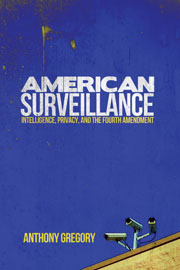To rally support for the Gulf War in 1991, U.S. government leaders presented a number of chilling allegations: the Iraqi invasion of Kuwait was a complete surprise; Iraqi troops were threateningly positioned on the Saudi Arabian border; the Iraqi military ripped Kuwaiti babies out of incubators.
We have since learned that the Iraqi invasion had all but been announced to the U.S. ambassador to Iraq; photographs of Iraqi troops on the Saudi border were doctored; and the incubator story was a lie. Like Vietnam’s Gulf of Tonkin hoax, the Gulf War rested on deception.
In spite of the reasons given for war, the U.S. didn’t liberate Kuwait — it reinstated its dictator. We didn’t oust Saddam. And the Middle East is hardly a safer place since then.
Many of the officials of that Bush administration now work in this Bush administration, and they now present a number of reasons why we should invade Iraq, oust Saddam, liberate the Iraqis, and make America and the world safer from the terrorist threat Iraq allegedly represents.
Colin Powell revealed a photograph to the UN Security council, supposedly of a “terrorist poison and explosive factory.” He also accused Iraq of evading U.N. inspectors by moving mobile biological weapons labs before the inspectors arrived.
The so-called poison factory — located in Iraqi territory controlled by Kurdish allies of the United States — turned out to be a television studio.
The so-called mobile weapons labs were food-testing trucks, according to chief inspector Hans Blix. Blix has also said that there exists no proof that Iraq has weapons of mass destruction, and that the “reported movement of munitions at the site could just as easily have been a routine activity.” As long as Bush bases his reasons for attacking Iraq on Hussein’s disrespect for the United Nations, it would seem consistent that he listen to it.
The administration cites intelligence reports to infer an impending threat from Iraq. But CIA sources reportedly accuse Bush of misinterpreting the evidence. Last July the CIA reported that Iraq had no demonstrated connection to September 11, posed no threat for the “foreseeable future,” and that attacking Iraq would actually increase risks of terrorism against the United States — an assessment the agency has not abandoned despite its other shifting sentiments.
Okay — but what if Iraq does have weapons of mass destruction?
If the U.S. invades Iraq, Hussein — who now refrains from deploying WMD out of fear of retribution — will have nothing to lose. He might release whatever weapons he has to terrorist groups, or use them against Israel, Egypt, or even sneak them into the United States.
Toppling the Hussein regime may or may not bring stability to Iraq — but it risks pushing millions in the Middle East toward the radical fringe, fanning the flames of hatred against America and thereby inciting more terrorism.
But doesn’t Iraq have connections to Islamist terrorists?
This assertion rests on Powell’s insistence that Iraq harbored al Qaeda terrorist Abu Musab Zarqawi. But since then CIA director George Tenet maintains that there is no evidence that Hussein has any “operational direction or control” over Zarqawi or Al Qaeda. Bin Laden did reportedly urge solidarity with the Iraqi people in the face of an imminent U.S. attack — but in the same statement he also called on the Iraqis to oust the secular Saddam Hussein.
But will we not at least, in Bush’s words, “bring to the Iraqi people food and medicines and supplies — and freedom”?
The U.S. tried bringing food to Somalia and American troops were massacred. It tried bringing stability to Yugoslavia, and the place is still riddled with ethnic hostility. It tried liberating Afghanistan but left behind a regime still overwhelmed by warlords, and the fighting continues today. Some reports indicate that Al Qaeda is operating there again.
Meanwhile, we still haven’t caught bin Laden, and North Korea is openly defying the U.N. and U.S. with their nuclear arsenal.
So why invade Iraq?
The U.S. government implied after September 11 that it would use disinformation to wage the War on Terror. If true, we have little reason to believe their given reasons now.
In the end, the United States may well invade Iraq and oust Saddam. The Iraqi people — the ones who survive the unneeded war, anyway — may even be liberated to a degree. And ending the sanctions on Iraq, which the United States might do in conjunction with its war, will probably bring needed food and medicine to the Iraqi people — not that lifting the sanctions necessitates war.
It seems unlikely, however, that the region will be stabilized, or that America will be the slightest bit more secure against terrorism. It will most likely be less secure.
Unbelievable Reasons for War
Anthony Gregory is a former Research Fellow at the Independent Institute and author of American Surveillance.
Comments
Before posting, please read our Comment Policy.








